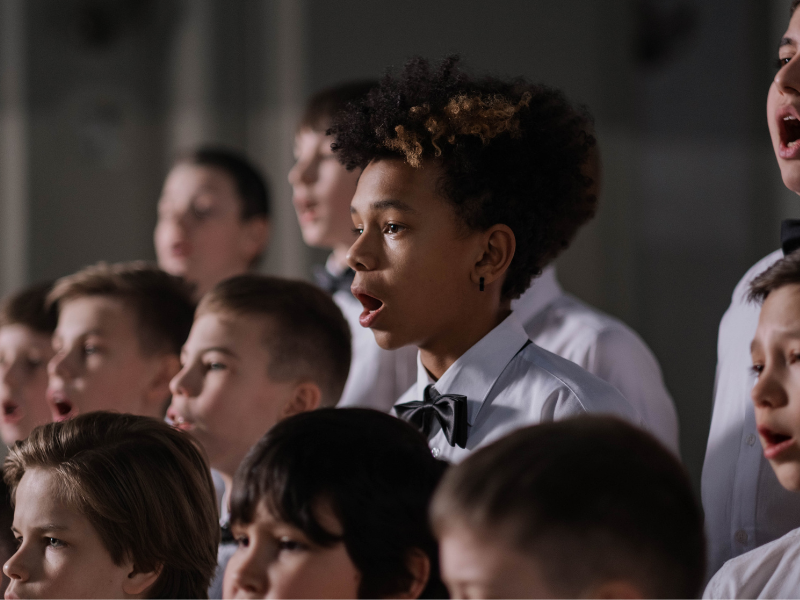
Research Updates

Here at Bigger Better Brains we believe that through educating yourself, you can then educate and affect positive change in your community.
With all of the research in the field of neuromusical science, our BBB Research section serves as a content hub for you. We regularly share findings and break down the latest research to educate and inspire discussion. We hope you enjoy this page on our website and share BBB news with your colleagues, parents and students.
Unlocking the Connection Between Music, Memory, and Learning
Recent research from the Georgia Institute of Technology has unveiled compelling insights into how music affects learning, memory, and emotions.
Depressed? Classical music could be the unexpected remedy!
Music has always been a go-to for lifting our spirits, but did you know classical music might take it a step further by actually helping treat depression?
Singing Together: How choirs boost brain health and emotional well-being
Singing in a community choir is more than just a musical activity—it's a powerful therapeutic experience
Could 'musical medicine' influence healthy aging?
Imagine a world where music serves as a powerful tool for healthy aging. Dr. Psyche Loui at Northeastern University explores how music strengthens brain connections, enhancing memory and emotions.
What happens to your brain when you sing?
Professor Sarah Wilson explains how singing is a form of natural therapy in this video by ABC Classic. She highlights the effect that singing has on motor networks, listening networks, planning and organisational networks, memory, language, and emotional networks. Essentially, singing is a full workout for the brain!
Music as Pain Relief
Recent research suggests that music, especially preferred tunes, can serve as potent painkillers. A study conducted by Darius Valevicius from McGill University found that participants listening to their favourite tracks experienced significantly reduced pain intensity and unpleasantness compared to silence or scrambled sound.
The Cognitive Symphony of the Brisbane City Pops Orchestra
This article dives into the history and enduring vitality of the Brisbane City Pops Orchestra who have recently celebrated their milestone 50th-anniversary performance. The orchestra boasts a diverse ensemble of musicians spanning generations, including members who have been involved since the beginning.
Heavy metal has some heavy mental health benefits
Researchers have tried to determine if certain genres of music are “better” than others for developing these vital life skills. This article highlights recent research into a genre you might not expect to have such positive impacts.
Brains work in sync during music therapy
Imagine a music therapist and their patient wearing EEG caps. Imagine them working together and coming to a moment when the therapy was “working”. Imagine seeing the EEG signal suddenly change for the patient, and then seeing the same change in the therapist just afterwards.
Music benefits both mental and physical health
We know that music listening and playing can change our mood. Sometimes it cheers us up, sometimes it makes it safe to feel sombre emotions, but did you ever wonder why? Now we know.
Singing is fundamental to our biological makeup
This is a brilliant article worth a full read, but here are some highlights for you from one of BBBs favourite researchers Professor Sarah Wilson from the University of Melbourne.





















